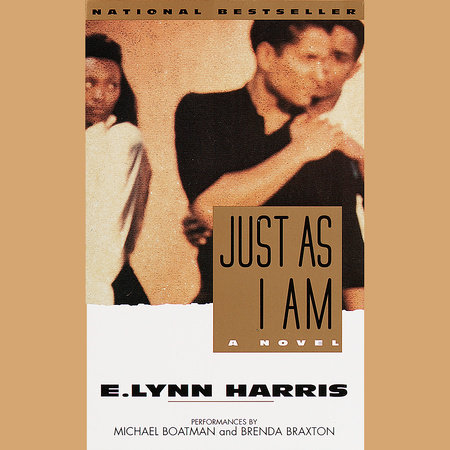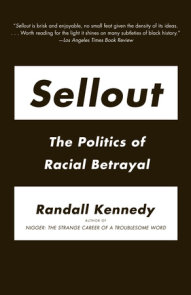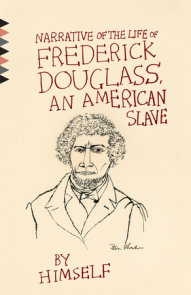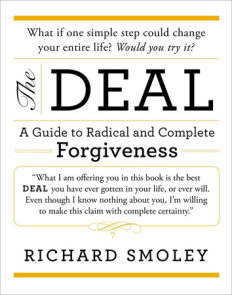READERS GUIDE
In three linked novels–Invisible Life, Just As I Am, and Abide With Me–E. Lynn Harris opens the door to a world rarely depicted in popular literature, the gay and bisexual black community. Written with sensitivity and sass, the novels have all appeared on the Blackboard bestseller list and have won enthusiastic acclaim from critics and a broad range of readers. The questions, discussion topics, and suggested reading list that follow are designed to enhance your reading group’s discussion of the books and the insights they offer into the lives of men and women, gay and straight, as they face such universal problems as finding and keeping love, making the right career choices, and dealing with sometimes difficult parents, co-workers, and friends.At the center of the Invisible Life trilogy is Raymond Tyler, a man struggling to do the right thing without betraying his past or sacrificing his dreams. The son of a successful lawyer in Birmingham, Alabama, Raymond always assumed he would follow in his father’s footsteps. His life takes an unexpected turn, however, when he finds himself attracted to a handsome fraternity brother at college. Their carefully cloaked relationship–at once confusing, exhilarating, and frightening–marks the first step in Raymond’s journey toward self-discovery and self-acceptance. It is a journey that takes him from the tradition-bound South to the uninhibited world of gay Manhattan, to a thriving Seattle, where his legal career and his love-life seem destined for lasting success. Along the way, Raymond encounters a rich and diverse array of people, including the flamboyant, openly gay Kyle; the beautiful, loving Nicole, an aspiring actress; and Basil, a dashing and dangerous football player. Their stories join with Raymond’s in a fast-paced chronicle that proves that love, friendship, and sexual desire frequently defy conventional expectations and explanations.
Harris’s novels not only recount the changes and choices the individual characters confront, they evoke in telling detail the society in which those choices are made. From the importance of church and family to the consequences of biases based on skin color, sexual orientation, and gender, Harris uncovers the ties that bind and the issues that divide the African American community today.
————————————————————————
Introduction
After several years in New York and at his father’s Birmingham law office, Raymond is in Atlanta, working as a sports lawyer for an up-and-coming black-owned firm. He has retreated into the closet, fearful of telling his parents about his sexual orientation and torn by regrets about his lack of honesty with Nicole. Their brief but passionate affair has left its mark on Nicole as well. Shaken by the realization that men are not always what they seem, Nicole confines herself to a non-sexual relationship with a supportive, if overly protective, white doctor. The cocoons around their lives are shattered when their close friend, Kyle, reveals he is dying of AIDS. Kyle’s courage–and his lovingly given, in-your-face advice–force Raymond and Nicole to re-examine their own lives and the paths they have chosen.Questions and Topics for Discussion
1. For Discussion: Just As I Am
At the beginning of the novel, both Raymond and Nicole are living celibate lives. Compare and contrast the reasons they give for making this choice. What role, for example, does fear play? How much does the desire for a "perfect love" influence them? Who do you think is more realistic about the possibility of finding a partner to trust and build a solid relationship with?
2. Raymond and Nicole alternate as narrators in Just As I Am. How does this enhance or detract from the flow of the book? Is Harris equally successful in creating their voices, or is one stronger or more believable than the other?
3. Raymond describes "a common syndrome in the black gay community, where nice, good-looking, educated black gay or bisexual men didn’t mind being friendly, but would never date each other" [p. 12]. Why do you think this pattern developed?
4. Is Nicole overly concerned about the color of her skin? Is her image of herself a result of her upbringing in a Southern black community or are her beliefs about beauty and skin color shared by many African Americans? Is Nicole’s mother’s pleasure when Nicole does better than lighter-skinned girls in beauty contests a form of pride or of prejudice [p. 37]?
5. Why doesn’t Nicole bring up race when she talks to her therapist about Pierce, the white man she is dating [p. 52]? Why is she both flattered and annoyed that Pierce compares her to Diahann Carroll? Do you think, as Nicole suggests, that race need not be an issue between two people who love each other? Later in the novel, Nicole asks herself "What type of black woman would be married to a white man? Is there a type?" [pp.120-121]. Is this a reflection of her doubts about Pierce or does it reveal her fundamental misgivings about interracial dating? Are there people who deliberately choose to go out with members of a different race, and if so, why do they make that choice?
6. When Raymond agrees to defend Basil in a lawsuit, Kyle says "You’re actually promoting gay-bashing when you defend people like Basil" [p. 90]. Do you think this is a fair assessment? What are Raymond’s motivations for taking on the case?
7. Nicole is hoping to get the lead in "To Tell the Truth," a play about Anita Hill and Clarence Thomas that Pierce is producing. Why does Harris use this use well-known incident as the basis for his fictional play? What parallels are there between the themes explored in the novel and the real-life questions that erupted during Thomas’s congressional hearing?
8. Why didn’t Kyle tell his friends that he was HIV positive? What does he mean when he says "Long story short, I didn’t want to spend the rest of my life dying" [p. 188]? Kyle receives a lot of help and support from the gay white community but why not any from the African American community?
9. Much of Just As I Am focuses on the secrets the characters keep from one another. How do secrets–and lies–affect the characters as individuals and relationships among them? Which relationships are the most honest? The least honest?
10. Kyle says "I think God just gets mad with us when we get down here and try to be something we’re not. I really think that pisses Him off" [p. 247] Is this message different from the teachings of traditional religions? How has the church shaped the attitudes, good and bad, of the various characters?
11. For Discussion: Invisible Life Trilogy
The title Harris chose for his first book–and eventually for the entire trilogy–echoes Ralph Ellison’s Invisible Man, a seminal work in African-American literature. How does the world Ellison describes compare to Harris’s description of the African-American community today? Are the protagonists similar in any way? Does "Invisible Life" only refer to the lives of the gay and bisexual men, or does it encompass aspects of the women’s lives as well?
12. Discuss the views of homosexuality you have encountered in your own life. Are most people more willing to accept racial and religious differences than sexual differences? Do gay black men and women suffer greater doubts and more guilt than gay whites? Why or why not? What cultural factors influence the way people feel and talk about sexuality? Did the novels change your own feelings about the gay community?
13. The characters’ relationships with their parents is an important theme in the trilogy. What impact does her mother’s criticism have on the choices Nicole makes and her image of herself? Is Basil’s hostility toward women a result of being raised by his father? Do you think his father genuinely loved him? Why didn’t his father succeed in teaching Basil "to be a man and to try and do what’s right"? Is Peaches a believable character or is Harris’s portrait of her too idealistic? Are you more sympathetic to Yancey when you find out how her mother treated her as a child?
14. Discuss the differences between the views on race, religion, and gender expressed by the two generations. How do they reflect the society in which each generation grew up? Do you think Americans are becoming more tolerant or that age-old prejudices still thrive?






















